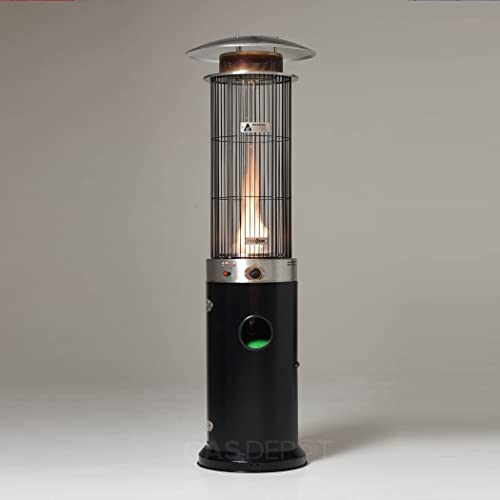10 Of The Top Mobile Apps To Heating Equipment
Understanding Heating Equipment: Types, Applications, and Considerations
Heating equipment plays an important function in keeping comfortable living and working environments. Whether in residential or commercial settings, efficient heating systems are vital for health, comfort, and efficiency. This article looks into numerous types of heating equipment, their applications, and essential considerations for picking the right heating system for specific requirements.
Types of Heating Equipment
Heating equipment can be broadly categorized into different classifications based upon fuel type, heating approach, and application. Below are the most typical types:
Type of Heating Equipment
Description
Typical Applications
Heaters
A combustion heater that warms air and distributes it through ducts.
Residential homes, commercial buildings.
Boilers
Heats up water to produce steam or warm water for heating space or offering hot water.
Radiant heating, commercial procedures.
Heat Pumps
Transfers heat from the air, ground, or water, using electrical energy to assist in cooling and heating.
Residential homes, zoning systems.
Radiant Heaters
Heats up objects directly without heating the air in between, often through electrical coils or hot water.
Homes, health clubs, workshops.
Space Heaters
Portable heaters that supply direct heat to a small area.
Homes, garages, workshops.
Hot water heater
Heats water for domestic usages, can be tankless or storage types.
Residential bathrooms, cooking areas.
1. Heating systems
Furnaces are among the most typical heating unit, particularly in colder environments. They can be powered by different fuels, consisting of gas, propane, oil, or electricity. visit the next site operates by heating air and distributing it through ductwork.
Benefits of Furnaces:
- Efficient heating across big areas.
- Can be incorporated with air conditioning systems for year-round environment control.
2. Boilers
Boilers are significant for heating water and producing steam for central heating unit. Unlike heaters, which heat air, boilers circulate warm water or steam through pipes to radiators or underfloor heating unit.
Benefits of Boilers:
- Provide even heat distribution and maintain humidity levels.
- Can make use of renewable resource sources, such as wood pellets or solar power.
3. Heat Pumps
Heatpump, typically thought about flexible, can efficiently heat and cool spaces. These systems work by extracting heat from outdoors sources (even in cold weather) and moving it inside your home.
Benefits of Heat Pumps:
- Energy efficient and can result in lower utility bills.
- Eco-friendly as they use renewable energy.
4. Radiant Heaters
Radiant heat systems are designed to heat things directly without warming the surrounding air. This method is frequently more efficient, as it minimizes heat loss.
Advantages of Radiant Heaters:
- Offer focused heating for targeted areas.
- Enhance convenience by maintaining more consistent temperatures.
5. Space Heaters
Space heaters are portable systems that offer supplemental heat in localized locations. They can be electric, propane-fed, or kerosene-based.
Advantages of Space Heaters:
- Cost-effective for heating little areas.
- Versatility to move as required for comfort.
6. Hot water heater
Hot water heater are important for offering hot water for domestic use, including bathing, cooking, and cleansing. They are available in numerous types, consisting of tankless, solar, and standard tank-style heaters.
Benefits of Water Heaters:
- Essential for daily health and household convenience.
- Energy-efficient options readily available.
Secret Considerations When Choosing Heating Equipment
Selecting the best heating equipment is important for performance and convenience. Here are some crucial considerations to bear in mind:
- Energy Source: Assess the availability and cost of different fuel sources in your area. Gas tends to be more efficient, while electrical units might offer benefit.
- Size Requirements: Select a system sized properly for your space. Small units might struggle to heat adequately, while extra-large models can result in ineffective heating and greater energy bills.
- Energy Efficiency: Look for equipment with high energy effectiveness ratings. Devices with ENERGY STAR labels can assist with expense savings and ecological preservation.
- Installation and Maintenance Costs: Consider both in advance purchase costs and long-term upkeep expenses. Some systems might have higher initial expenses however lower operational costs.
- Environmental Impact: Evaluate options that decrease carbon emissions and minimize general ecological footprints, such as solar hot water heater or heatpump.
Regularly Asked Questions (FAQs)
What is the most efficient type of heating equipment?
The effectiveness can differ, but heatpump are usually thought about highly efficient, especially in milder environments. They can supply significant energy savings compared to traditional heating approaches.
How frequently should heating equipment be serviced?
Generally, it is advised to service heating unit at least once a year. Regular maintenance ensures efficient operation, longevity, and safety.
How can I improve the effectiveness of my heating unit?
- Routinely modification or clean filters.
- Seal leaks in ducts and windows.
- Usage programmable thermostats to regulate temperature levels successfully.
Exist environment-friendly heating options available?
Yes, options such as solar water heaters, biomass boilers, and geothermal heat pumps provide eco-friendly heating solutions that utilize sustainable resources.
What size heating unit do I require for my home?
The size will depend upon numerous aspects, consisting of the home's square footage, insulation quality, and local environment. An HVAC expert can perform a load estimation to identify appropriate sizing.
Heating equipment is a critical aspect of building comfort and performance. With numerous options readily available, understanding the types and their applications is essential for making informed decisions. By considering energy sources, equipment sizing, performance, and environmental impacts, homeowners and services can ensure their heating systems meet their requirements efficiently.
In conclusion, the very best heating service frequently involves balancing initial expenses, functional effectiveness, and ecological considerations— ensuring a warm and comfy living environment for years to come.
